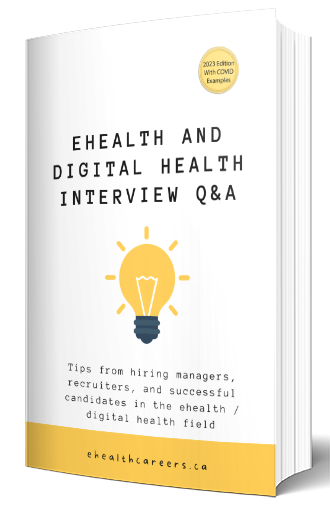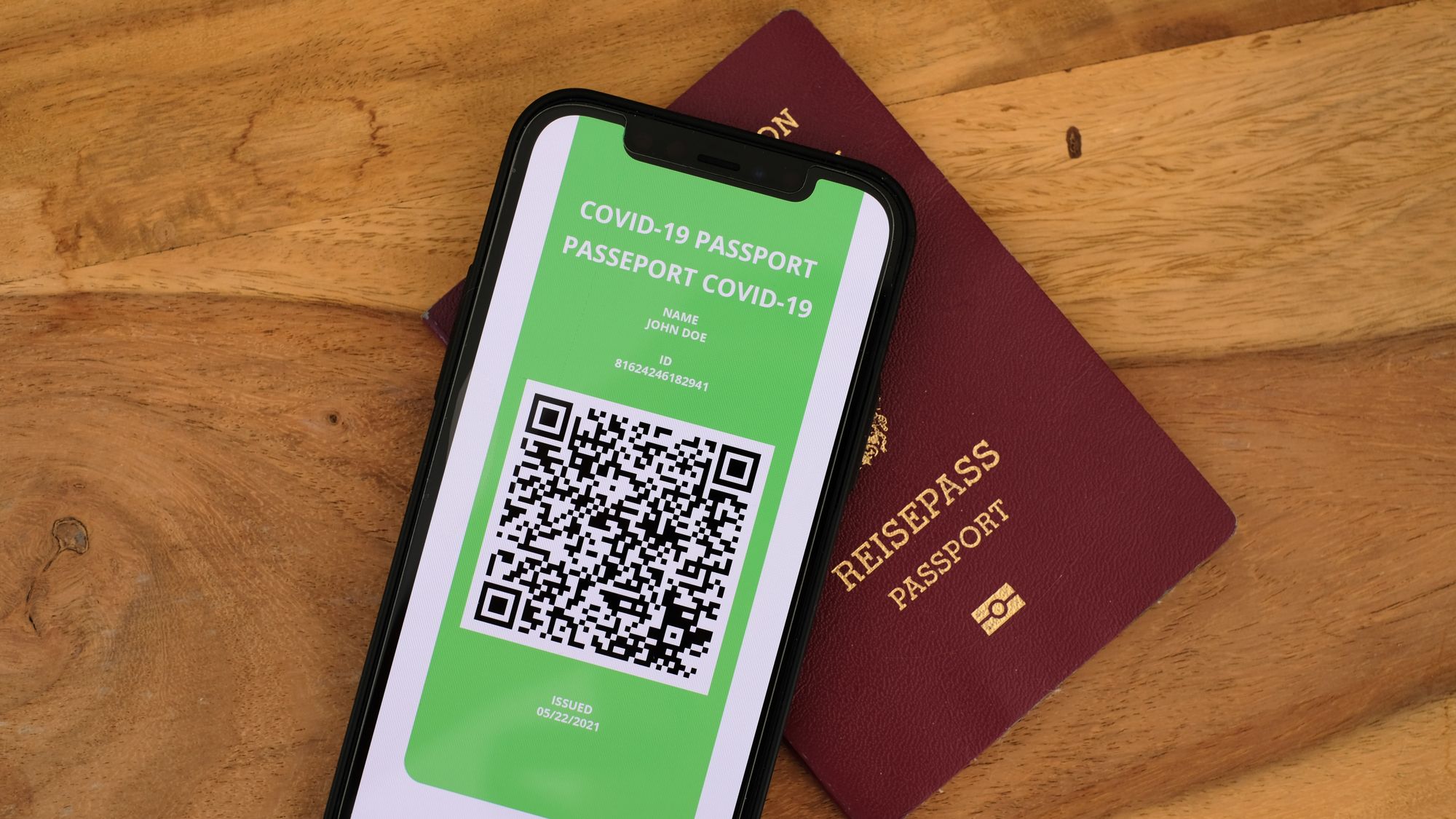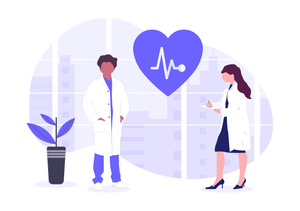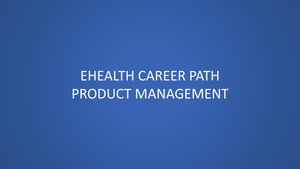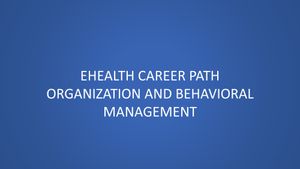In this blog, I’ll offer some tips to preparing your internship/practicum/co-op interview. This guide is written from a combination of my past experience in successfully receiving intern offer to a highly competitive position after completing highly competitive and difficult interviews when I was applying to internship during my MSc ehealth studies and of my current experience in the Canadian health system as ehealth professional where I have interviewed interns to hire them for health informatics positions.
I can hands down say your chances of getting that offer will be much higher if you follow the recommendations outlined in this blog compared to someone who did not.
One thing to keep in mind is that the successful applicant receiving the offer is the best candidate in the application process, which may not be the same applicant who is best suited for the position. Presenting yourself as the best candidate for an ehealth position requires a very different skillset than being a skilled ehealth professional. Stop and take a moment to think about that, because this is very important, and it’s what many applicants miss.
The ehealth interview can be very challenging for the unprepared – this is primarily because many questions asked requires you to have specific knowledge in the ehealth industry or to provide a prior example of something specific. They are not things you would talk or think about in your daily lives. If you did not prepare or do not know how to prepare, you simply are unable to answer the questions.
Fortunately, if you make smart preparations, you will definitely do much better on the interview. In the next few sections, I will break the typical digital health interview down based on the types of questions asked – I will briefly explain each type of question and offer some ways to prepare for them.
Types of Questions
- General
- ehealth / Digital Health General
- Behavioral
- Technical
- Your Questions
1. General
The general questions are akin to any other co-op interview. They are not specific to ehealth / digital health nor the position you’re applying to. The general questions usually are the first set of questions that interviewers use to greet you. They are conversational in nature and act as ice-breakers.
Examples of general questions are:
- Tell us about yourself.
- What are some of your strengths and weaknesses?
- Have you interned elsewhere before? Where did you intern before?
- Tell us about your experience at [something on your resume].
- Why should we pick you?
In answering general questions, you want to assume the interviewer has not read your resume or cover letter. You want to be concise and strategic to only mention things that you would want interviewer to follow-up on. Chances are, your interviewer’s second question may very well just be a follow-up on something you said when responding to a general question.
In some cases, your interviewer may present an “ugly” question to you, especially if the internship position is popular where many students are competing for only 1 spot. An example of such question is “why should we pick you?” You want to be persuasive here but also be cautious not to downplay your classmates.
Sometimes, the interviewer may start off asking if you know about their organization. It’s perfectly fine to not know much – in which case, the interviewer will usually give you an introduction of their organization before asking you their first actual question. That said, when answering this question, you don’t want to say that you know absolutely nothing, as this hints the interviewer that you put no effort to find out what they do and are not as keen to intern there.
Things to prepare
- Some highlights of your resume (know your own resume inside out)
- Your career goals
- Why you want to intern at the organization you’re applying to (interviewing at)
- 2 strengths and 2 weaknesses about you
- Your prior experience that is relevant to the role and/or organization that you’re applying to
- Some reasons why they should pick you for the internship
2. ehealth / Digital Health General
For an internship interview, the interviewer will usually ask you some general questions about the ehealth / digital health field. These are asked due to the internship positions being entry level and thus they don’t expect you to be able to answer very role-specific questions that require experience.
For these questions, the materials you are taught in MSc ehealth or MHI classrooms are usually sufficient. But since for the internship, you are competing with your colleagues who are also taught the same materials, you want to go an extra mile to explore and prepare a bit more yourself. This can be achieved with self-directed readings of online ehealth blogs or news.
Things to prepare
- Keep up-to-date with the latest ehealth and health technology trends in Canada (and around the world)
- Have a general knowledge of the latest ehealth landscape in Canada (ie. are most health clinics / hospitals using electronic systems or are they using paper systems)
- Some things happening in the ehealth field right now that interests you (doesn’t have to be related to the position you’re applying to)
- The e-book at the end of this blog is a useful resource. It has real interview questions with question analysis and sample answers of ehealth / digital health general questions.
3. Behavioral
Behavioral questions are questions that take the form of: “Give a past example of a time when you …”. These questions are typically role-specific and open-ended. Being role-specific means questions are related to the role you applied for. For example, if you are applying to a health analytics position, you probably wouldn’t be asked to talk about a time where you overcame a digital health adoption challenge. Being open-ended means, you would be asked something general, and not limited to something specific. For example, you may be asked to tell a time (any time in the past) where you had to apply any privacy technique to any health dataset, and you wouldn’t be asked to tell a specific time (ie. within last two weeks) where you had to apply a specific technique to a specific data set.
These questions are meant to test your soft and/or basic technical skills. In my opinion, these questions are more of an exam of your interview skills. I say this because I have interviewed others (for both internship and full-time health informatics positions) and noticed dramatically different outcomes for candidates that are able to articulate answers to these questions well vs. similarly experienced candidates who have difficulty explaining their answers here.
Things to prepare
- Do mock interviews – both McMaster MSc ehealth and University of Toronto MHI programs provide mock interviews for students to support their internship / practicum applications.
- Based on the role you’re applying to, review things you’ve done in the past that are similar to responsibilities for the role you're applying to. Review the ehealth career paths for responsibilities of each role.
- The e-book at the end of this blog is a useful resource. It has real behavioral interview questions with question analysis and sample answers to project management and business analyst roles.
4. Technical
Technical questions are not asked in every interview - they are limited to roles that require technical skills such as analysis and evaluation, or information technology or information management roles. Skills in question are usually coding, statistics, and health analysis methodologies. They are usually very simple, easy-to-solve technical questions / challenges that can be completed by an entry-level person.
Things to prepare
- Prepare an answer for each sample interview question listed in the specific ehealth career path guide for the role you’re applying to (Analysis and Evaluation career path, Information Technology career path, Information Management career path).
- Go over technical code you have written in the past and know how to explain your code.
- Go over statistics and health analysis methodologies that are taught in your class.
- Prepare a general answer to say for when you do not know the answer to a technical question.
5. Your Questions
This portion of your interview is fully in your control and you can actually fully prepare this beforehand - but too often, I feel this portion is overlooked by the student.
At the end of your interview, you will be given the opportunity to ask your interviewers a few questions. Since it’s completely your choice to ask on any topic, and since this is the final item in the interview, you actually get to decide how to leave the final impression of yourself on your interviewer.
Things to prepare
- Research the organization and the role you’re applying to – prepare 2-3 questions on things that are important to you.
- Be strategic - think about how your questions will leave an impression of you on your interviewer.
Interview e-book
Before you can prepare your answers, you first want to know what are actually asked during the internship interview. While your interviewer won't give you a list of questions beforehand and it’s impossible to anticipate every question you will be asked, there are certain questions that will come up over and over again.
To help you put your best foot forward, I recommend using the following e-book (which I also contributed to) to walk you through real ehealth / digital health interview questions. It breaks down some of the most popular ehealth / digital health questions asked in real interviews for you, revealing the intent of the question behind the question being asked – and provides some strategies to tackling these questions.
I recommend going through the e-book and rehearse answers to the interview questions presented in there. Although during the interview, you do not want to sound like you are reading from a script. The trick to answering questions is, you want to be relaxed and sound conversational. How do you do that? More rehearsing. The best answers are a combination of rehearsed fragments tied together conversationally.
Disclosure: I do have a financial interest if you make a purchase with the link below – at the same time, I have also negotiated a 10% off for you if you use my link: https://gumroad.com/l/ehealth-digital-health-interview/ming
In the ehealth and Digital Health Interview Questions (with Analysis) and Answers e-book, you'll get:
✔️ 50 common ehealth / digital health questions prepared by hiring managers, recruiters, and successful candidates in the ehealth field (see breakdown below).
✔️ 10 general ehealth / digital health questions with question analysis and sample answer.
✔️ 20 questions for project management type positions (ie. project manager, project analyst, project coordinator, etc.) with question analysis and sample answer.
✔️ 20 questions for business analyst type positions (ie. clinical analyst, health informatics specialist, clinical informatics analyst, etc.) with question analysis and sample answer.
✔️ Instant PDF Download.


